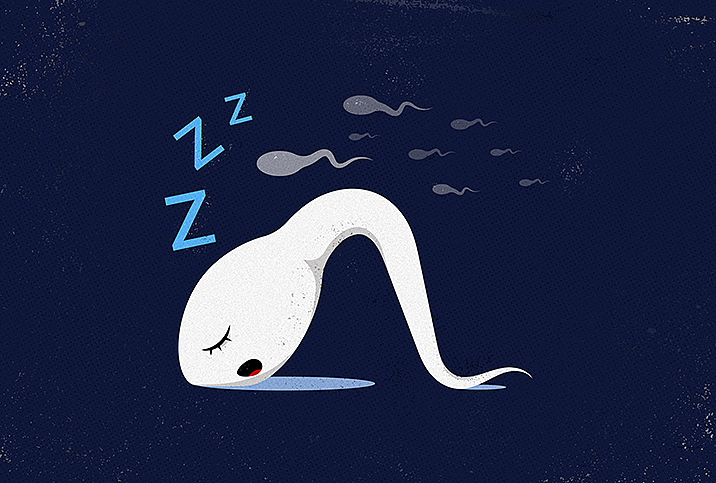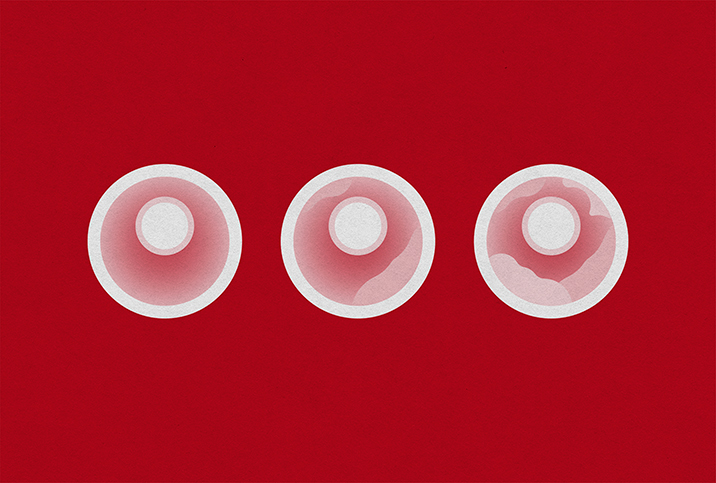What Are 'Lazy Sperm' and What Can You Do About Them?

"Lazy sperm," or sperm with low motility, is known as asthenozoospermia and is a common cause of infertility in men. Sperm motility is the ability of sperm to navigate efficiently through a woman's reproductive system so they can reach and fertilize her egg. Lazy sperm may not swim quickly (or at all) or may swim in a straight line or tight circles—never finding their way to the egg.
Fortunately, you can implement several steps to improve the motility of your sperm and make them stronger, healthier and able to race toward your partner's egg.
Start taking selenium and vitamin E
Selenium and vitamin E supplements used in combination may increase your sperm motility by 5 to 10 percent or more. Researchers found that these supplements were highly effective at improving sperm motility and reversing oxidative sperm DNA damage among infertile men, according to a 2011 study published in the International Journal of General Medicine. Consult your doctor before starting selenium and vitamin E, as many nutritional supplements are not federally regulated and may interact with some medications.
Stop smoking
Nicotine narrows your blood vessels to limit the amount of oxygen, blood and nutrients your organs and cells need to produce healthy sperm, and can even lead to erectile dysfunction (ED). Toxins in cigarettes are also found to reduce levels of zinc and increase levels of the metals cadmium and lead. These factors can contribute to lazy sperm, according to a 2015 study published in the Postgraduate Medicine journal. Stop smoking, and consult your doctor if you need help quitting.
Keep your testicles cool
To prevent lazy sperm, the temperature of your testicles should always remain around 93.2 degrees Fahrenheit (34 degrees Celsius) for optimal sperm health and motility. Hotter temperatures can damage sperm and make it more difficult for you to conceive. Avoid wearing tight underwear and clothing, and limit the amount of time you spend in saunas and hot tubs. Stick to wearing loose clothing and breathable fabrics as much as possible, especially if you work in hot conditions or exercise frequently.
Lose excess weight
Obesity is a major risk factor for reduced sperm motility and other fertility problems. Related factors such as poor diet and lack of physical activity can trigger hormonal imbalances that interfere with sperm production and quality. Additionally, the scrotum of an obese man usually sits closer to the body where the temperature is higher, which can compromise sperm health. Make changes to your lifestyle as needed to lose excess weight, and work with your doctor to treat any underlying medical conditions that may be interfering with your weight.
Review your medications
Certain medications may be causing you to have lazy sperm, including antiseizure drugs, antidepressants and calcium channel blockers. Read the package inserts included with your medications to identify any fertility-related side effects or ask your doctor for more information. If it's determined that your medications are affecting your sperm motility, talk to your doctor about the possibility of trying a different treatment.
Drink less alcohol
Heavy alcohol use can reduce levels of testosterone and other male hormones that play a role in sperm production and quality. Evidence also suggests that 50 percent of men who become physically dependent on alcohol have poor sperm motility. If you drink regularly, aim to drink no more than two drinks a day, which is defined as moderate drinking by the Centers for Disease Control and Prevention (CDC). One drink equates to 12 fluid ounces of beer, 5 fluid ounces of wine or 1.5 fluid ounces of spirits such as vodka and whiskey.
Forty to 50 percent of all infertility cases between couples are due to male factors, including lazy sperm, according to a 2015 study published in the Journal of Human Reproductive Sciences. If you're experiencing difficulty conceiving with your partner, talk to your doctor about undergoing testing to identify and treat the root cause of your fertility problems.


















